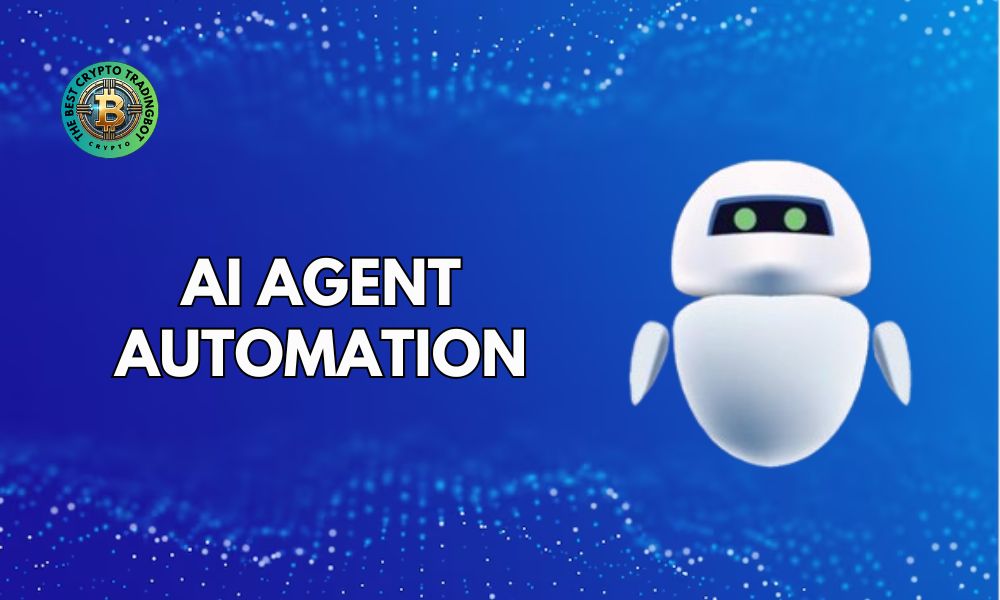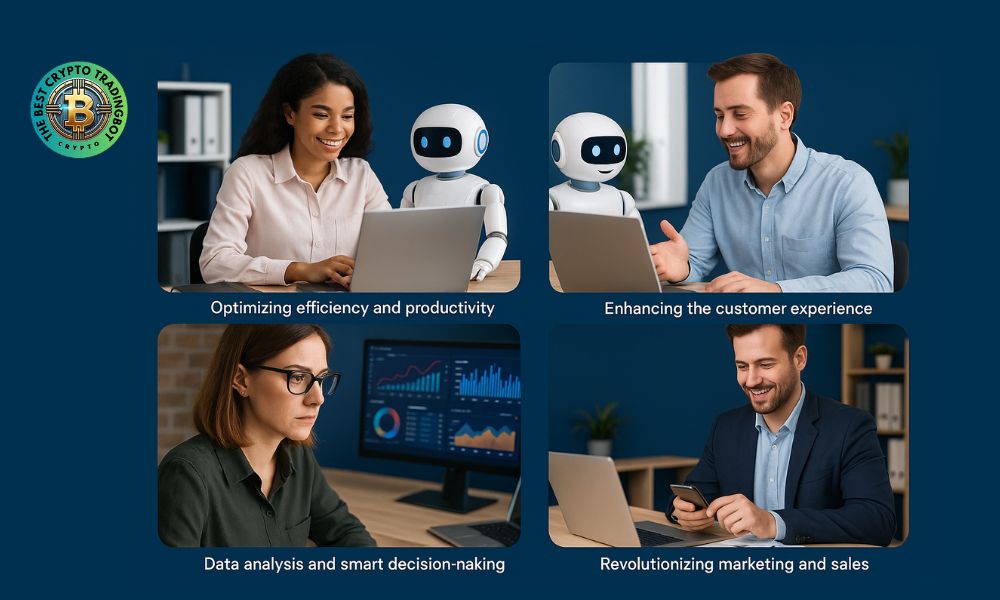Ai agent automation is reshaping how we work and interact with technology, moving far beyond traditional automated processes. This technology creates intelligent digital “agents” capable of thinking, learning, and executing complex tasks autonomously, heralding a new era of efficiency and innovation for businesses in every sector.
Contents
What is ai agent automation?
Ai agent automation represents a significant leap forward in artificial intelligence, where software systems known as “agents” can autonomously perform complex tasks on behalf of humans. Unlike traditional automation (like RPA – Robotic Process Automation) which merely follows pre-programmed rules, AI agents can perceive their environment, analyze situations, make decisions, and take action to achieve specific goals.
Imagine a virtual assistant that not only schedules an appointment but can also negotiate a suitable time with all parties, check traffic conditions to suggest a departure time, and even book a car for you. That is the power of ai agent automation. It transforms automated tools from simple order-takers into digital partners with reasoning and problem-solving capabilities.

How does ai agent automation work?
At its core, this technology combines several fields within artificial intelligence, including:
- Machine learning: Allows agents to learn from past data and experience to improve their performance over time without human intervention.
- Natural language processing (NLP): Helps agents understand and interact with humans through spoken and written language, such as reading emails or analyzing customer inquiries via chat.
- Large language models (LLMs): Provide the ability to reason, generate text, and understand complex contexts, serving as the “brain” of the agent.
A basic operational cycle of ai agent automation includes:
- Perception: The agent collects data from its environment (e.g., a new email, a support ticket, sales data).
- Reasoning: Based on the collected data and its defined goals, the agent uses AI models to analyze and decide on the next course of action.
- Action: The agent executes the decided action (e.g., replying to an email, updating a CRM system, creating a report).
- Learning: The agent evaluates the outcome of its action and updates its knowledge base to perform better in the future.
Benefits and applications of ai agent automation
Integrating ai agent automation into business operations offers undeniable benefits, creating a strong competitive advantage.
Optimizing efficiency and productivity
AI agents can work 24/7 without rest, handling repetitive and time-consuming jobs like data entry, schedule management, and email filtering. This frees up employees from manual tasks, allowing them to focus on strategic, creative, and human-centric responsibilities.
Enhancing the customer experience
An ai agent automation system can provide instant and highly personalized customer support. Agents can answer frequently asked questions, process return requests, provide product guidance, and even predict customer needs based on their interaction history. This helps reduce wait times and increase customer satisfaction.
Data analysis and smart decision-making
AI agents are capable of sifting through and analyzing massive amounts of data in a short time, extracting valuable insights. They can monitor market trends, analyze competitor behavior, and recommend data-driven business decisions, giving leadership a more comprehensive and accurate view.
Revolutionizing marketing and sales
In marketing, ai agent automation helps automate customer segmentation, personalize email campaigns, manage social media advertising, and nurture potential leads. In sales, an agent can automatically update customer information in the CRM, track opportunities, and send reminders to sales staff, ensuring no opportunity is missed. This level of intelligent support is a key feature of ai agent automation.

Challenges and the future
Despite the immense potential, implementing ai agent automation also comes with some challenges, such as initial costs, the complexity of integrating with existing systems, and issues related to data security and ethics.
However, the future of ai agent automation is incredibly promising. We will see the emergence of multi-agent systems, where multiple AI agents can coordinate with each other to solve extremely complex problems. The technology will become increasingly intelligent, more seamless, and an indispensable part of every organization, acting as a true partner to humans. The future of work is not about humans versus machines, but humans collaborating with intelligent agents to achieve greater things.
In summary, ai agent automation is not just a technological trend but a true revolution, changing how businesses operate and compete. Adopting this technology will unlock immense potential for efficiency and innovation. To stay updated on the latest in technology and marketing, don’t forget to follow The Best Crypto TradingBot.
